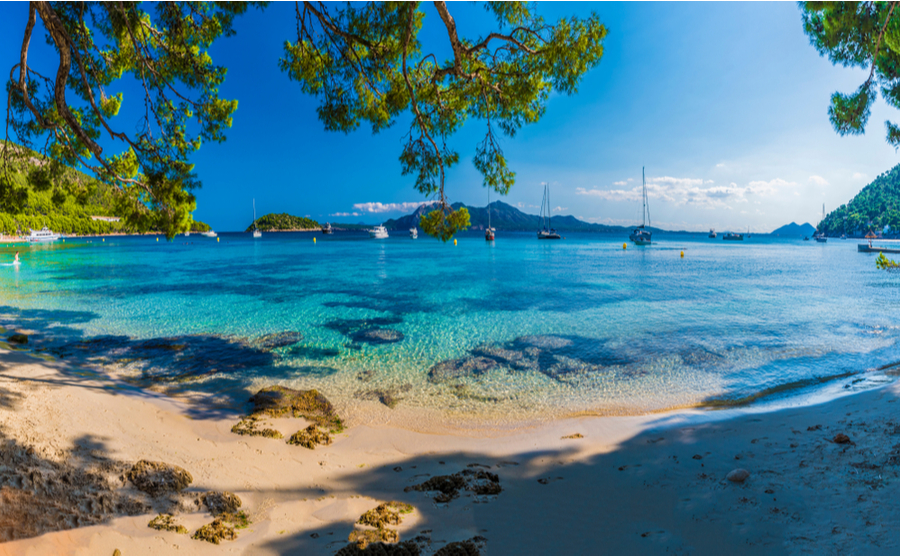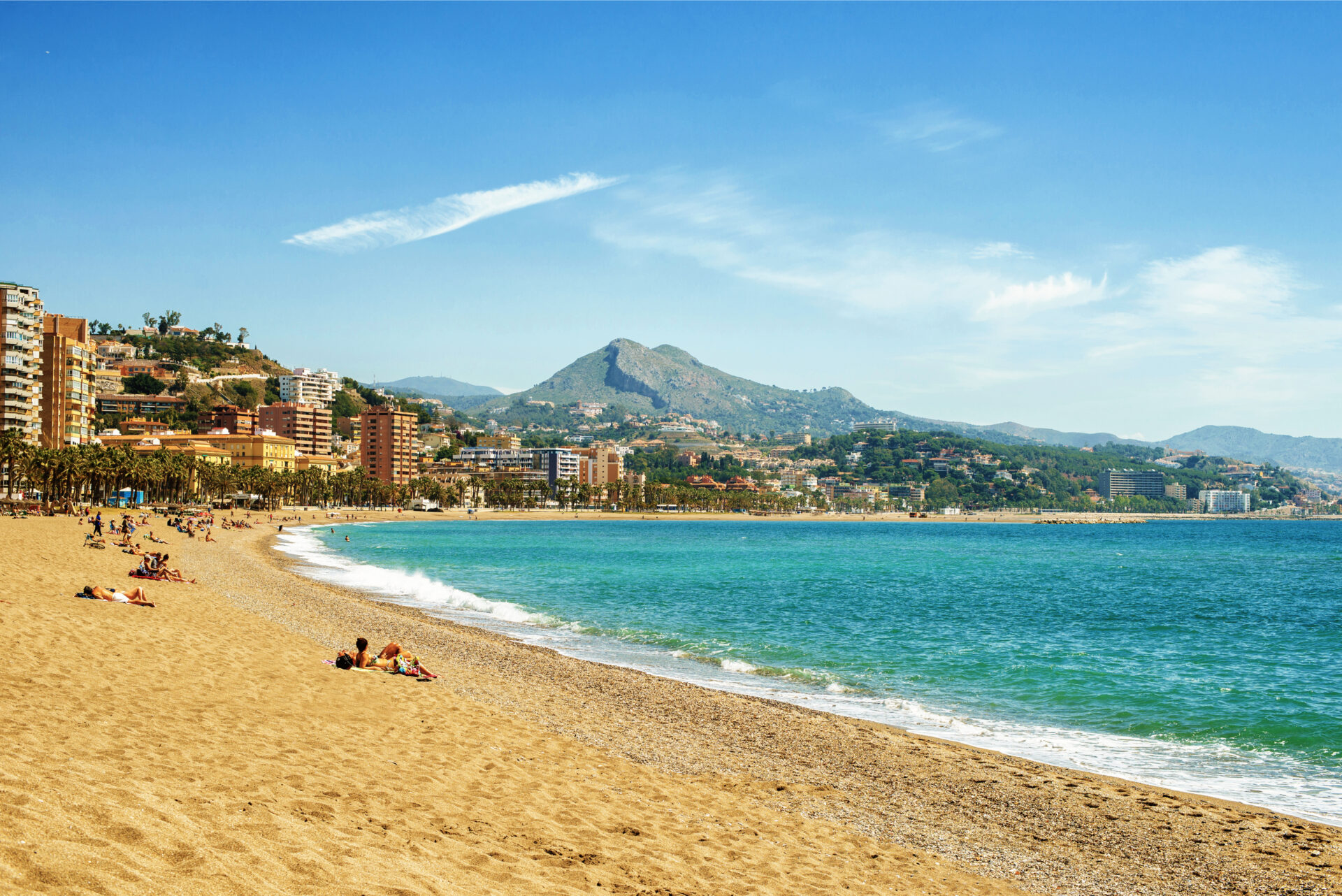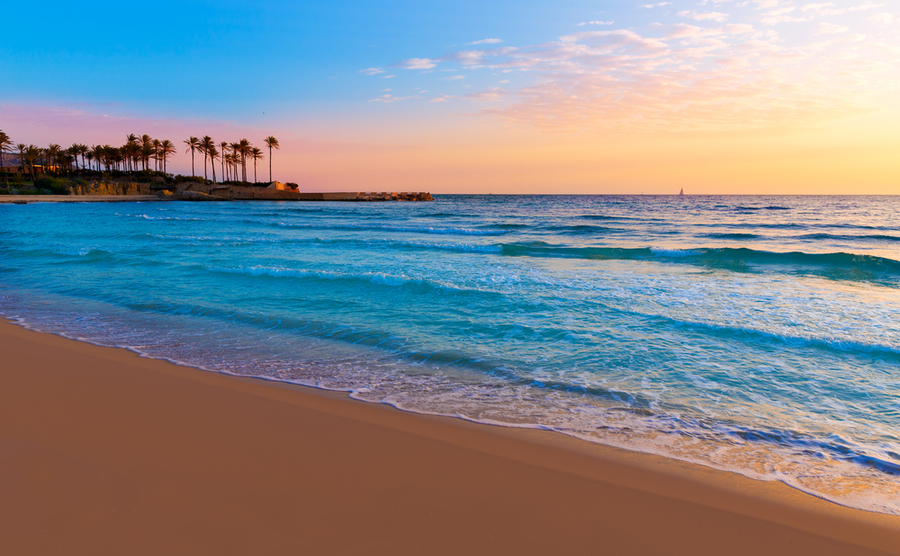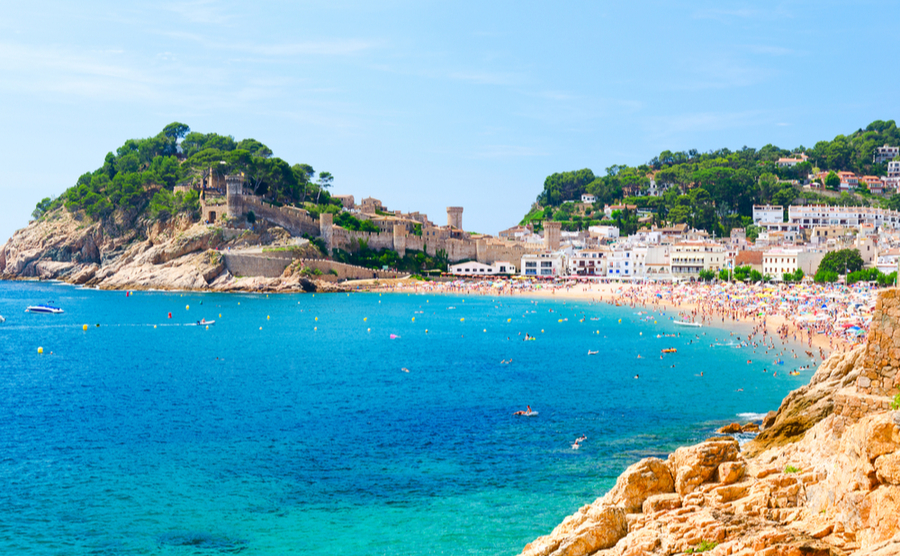As of 23 June all of Spain is out of lockdown and the government’s State of Alarm will not be renewed, for now. Power has already been returned to the 17 Autonomous Regions, meaning that each will determine how to proceed with keeping a check on COVID-19 and re-introducing tourism. The latter is vital to Spain’s economy, being 15% of its GDP.
Tourists from Germany and elsewhere in the Schengen area were the first to be welcomed on Spanish soil. Last weekend, Mallorca opened its airport to flights from Germany as “a trial” to see how best to handle incoming tourists. Many Germans have second homes on the island and have been keen to visit them after the complete ban on international travel caused by the pandemic.
If you’re thinking of buying a holiday home, why not pool your resources and buy with family? Read our guide, Buying Abroad with Family to find out how to halve the cost and double the fun!
The airlines are, of course, keen to get flights going again. Most of those that service Spain have announced the dates when they will begin. On Saturday 20 June it was announced that visitors from the United Kingdom can come to Spain without the need to self isolate for two weeks, which will be happy news for the thousands of British second home owners.
With that in mind, the rules for enjoying Spain’s 8,000 km of beaches will, from now on, vary depending on which region they’re in. Here is a small guide about what to expect when you head for the sand and the sea.

Mallorca has opened airports to Germany.
All regions
There are some rules which apply to all regions:
- Fines of up to €3,000 will be exacted for failure to comply.
- Strict hygiene is a precise requirement – showering before accessing the beach, making sure that everything you bring onto the beach is clean.
- One towel for each person.
- Don’t forget to keep hands clean, avoid touching your face, nose and mouth.
- When using toilets, footwear such as flip flops must be worn.
- A minimum of 2.5 metres space must be observed between umbrellas.
- All beach games are prohibited, as well as lilos and pets, BBQs and night parties.
- Children younger than 14 must be accompanied by an adult.
- It is advisable for groups, families and individuals not to spend more than 4 hours at the beach at one time.
If you’re preparing to come over to Spain to look at properties, make sure you know what to look for by reading our free guide, Your Viewing Trip.
Costa del Sol (Andalusia)
- Beaches in Estepona will be raked and cleaned each night. Public conveniences will be open from midday to 8pm and cleaned 4 times in 24 hours. Hand sanitizers will be available when entering and leaving.
- The regional government has employed 3,000 unemployed people to act as a new “playa patrol.”
- Malaga will have 902 “beach agents”.
- In Fuengirola the beaches will be managed using AI (artificial intelligence) and sensors in street lighting.
- Eating and sharing food is not advisable because of possible contamination.
- Mijas Costa will use drones to control numbers on their beaches. Gel and sanitizers will be provided.

Beach La Malagueta, Malaga
Costa Blanca (Alicante)
- 1,000 Beach assistants have been employed on this coast.
- In Benidorm, the beaches will be closed between midnight and 7am. Fines of up to €750 await those who do not comply. No beach sports are allowed. No swimming in red flag areas. No glass items to be taken to the beach. There are plots especially for the over 70s, with no more than four people permitted on each plot.
- Torrevieja opened its beaches on 17 June and will be open between 8.30am and 8.30pm. Numbers will, however, be controlled in the high season. There will be staff to advise on where to place your umbrella and your family with social distancing in mind. There will be three zones, for sunbathing, movement and a walking area of six metres by the sea. Families will be allotted a 4×4 metre site. The sand will be cleaned each night. Foot-baths have been installed and toilets will remain open. They will be cleaned at regular intervals.
- Javea is restricting numbers on its beaches with no more than 2,000 people on the famous Arenal beach. It will be first come, first served and will be strictly controlled.

Javea Xabia El Arenal beach, Alicante
Spain Property Guides can put you in touch with the very best lawyers, estate agents and international payments specialists in Spain, for total peace of mind. Get in touch with your Golden Three here.
Costa Brava (Catalonia)
- Lloret de Mar has decided to separate groups on their beaches. There will be specified zones for families with children, another for the elderly and the third for single people and couples. 30 security staff will ensure that these zones are complied with.
- Barcelona’s beaches have been opened for individual water sports and sunbathing. However, group games are not permitted.
- The small but stunning beaches of Calella de Palafrugell, Llafranc and Tamariu will be controlled by an App called ‘Platges Obert, which has been issued by the town hall in Palafrugell. There will be a traffic light system: green means there is plenty of space within the social distance guidelines, amber means there is limited space and red means there is no space on the beach.
Despite all the new regulations, everyone will be able to enjoy time on Spain’s wonderful beaches.

Tossa de Mar, Costa Brava
Despite all the new regulations, everyone will be able to enjoy time on Spain’s wonderful beaches. With safety a paramount concern, it is hoped that visitors and Spaniards alike will conform to all the requirements to allow a virus-free summer.


 Property Guides
Property Guides France
France Portugal
Portugal Spain
Spain Italy
Italy USA
USA Ireland
Ireland Greece
Greece Cyprus
Cyprus Australia
Australia New Zealand
New Zealand Canada
Canada Turkey
Turkey UK
UK








